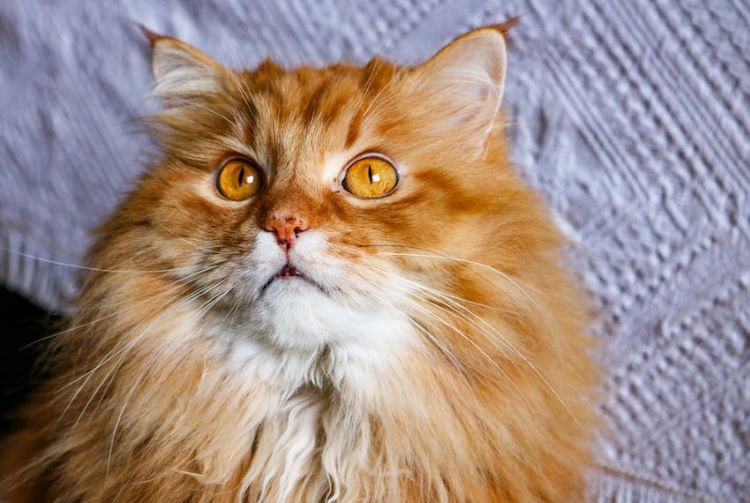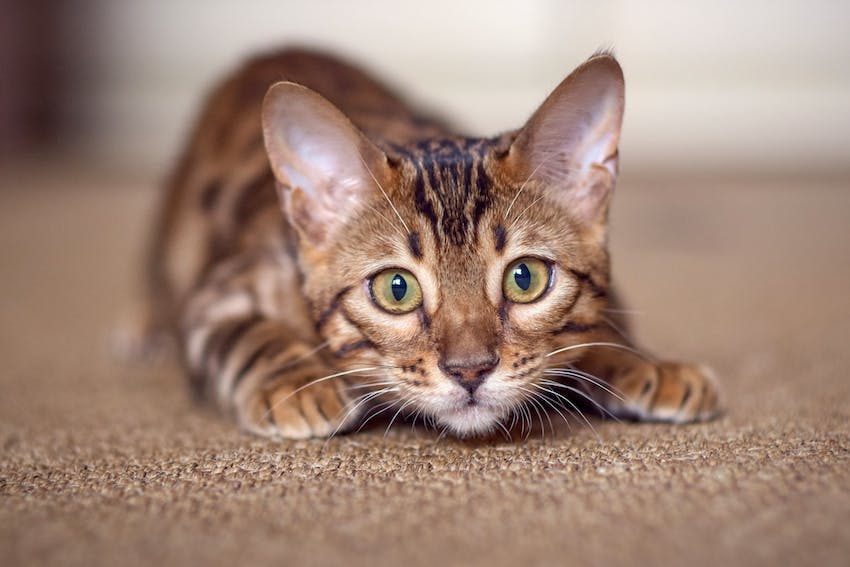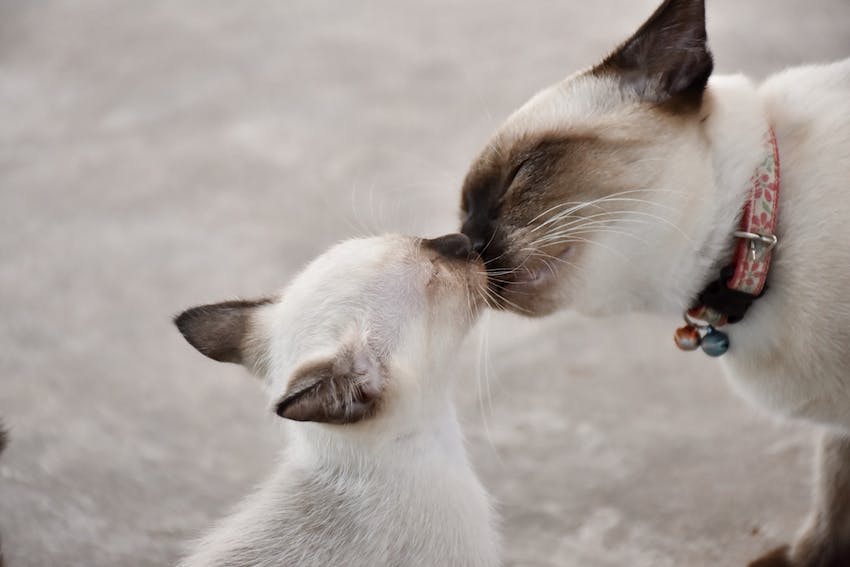Ready to help treat your pet to a healthy life?
6 Critical Cat Behavior Changes to Watch For
By : Kelli Rascoe | Updated Oct 10, 2021

Our feline friends are independent creatures who can be quite particular with how they behave and interact with us on a daily basis. But if they start acting unusual, it may be a subtle sign of something being off. Kitties are known for being quirky, so how do you know when cat behavior changes merit seeking medical care?
The good news is that pets do sometimes alter their behavior for no particular reason. However, any changes that seem to come on suddenly and don’t go away are cause for concern.
6 cat behavior changes that require veterinary attention

To get to the bottom of things, we spoke with Trupanion veterinarian Dr. Sarah Nold about five critical cat behavior changes that pet owners should watch for.
1. Changes in eating habits
Some cats are naturally hungrier than others, but any change in usual eating patterns warrants a call to your veterinarian. Parasites, hyperthyroidism, or diabetes can cause a cat to feel constantly ravenous, for example.
If your cat isn’t eating at all though, don’t wait to get help. There are a number of potential causes that range from mild to serious, but allowing the problem to get worse is asking for trouble.
“If your cat continues not to eat or has a decreased appetite, it’s best to contact your veterinarian sooner than later,” Nold says. “A significant reduction in caloric intake can result in a serious condition called Hepatic Lipidosis.”
2. Drinking too much or not at all
Just as changes in eating behavior are something to talk to your veterinarian about, a shift in cat drinking habits can also be cause for concern. Certain illnesses or even a change in diet (like switching from dry food to wet food) can make pets feel extra thirsty or suddenly not want to drink any water at all.
“If you haven’t made a recent change in your cat’s diet, then you should consider contacting your veterinarian.” Nold says. “Your cat may also not be drinking water if they are too weak or it is too painful to get to the water dish.”
Not sure if your kitty is staying properly hydrated? Consider keeping a journal of your cat’s water bowl level and how often you find yourself refilling it. Having this information on hand will help your veterinarian determine if there is an issue.
3. Not using the litter box
Pet owners tend to have a fairly easy time training kittens to use a litter box thanks to felines’ natural bathroom instincts. There still may be occasional accidents during training, but if your grown cat suddenly stops using the litter box, it’s important to find out why. Besides being a messy situation, this could also indicate an underlying behavior or health concern that needs to be addressed.
“If your cat is in pain, like with arthritis, they may decide it’s easier or less painful to use the bathroom elsewhere instead of having to step up or jump into the litter box,” says Nold. “Additionally, if your pet is vocalizing and crying out [while going to the bathroom], please seek veterinary care immediately.”
4. Increased aggression
Our feline friends are notorious for being a bit temperamental, but suddenly increased aggression in cats is definitely something worth noting to your veterinarian.
“Underlying health conditions that could be related include rabies, hyperthyroidism, seizures, toxins, or cancer,” Nold explains.
Before you get too alarmed, the good news is that a rise in your cat’s aggressive behavior can also stem from many non-medical causes. Take a step back and see if there is anything that could be potentially stressing your kitty out, like new people or other pets. Just like their human counterparts, cats want to feel at home and relaxed in their space. If they’re acting aggressive, they may just need more time to become comfortable.
5. Lack of self-grooming (or too much!)
Cats are instinctively clean creatures who start grooming themselves during kittenhood. So, it’s concerning when they stop this normal and healthy behavior. While pet anxiety may be the cause, it’s important to bring up the issue with your veterinarian. Certain illnesses or injuries may cause your cat to stop grooming, but they may not be obvious. For example, hidden dental issues could make grooming painful for your cat’s mouth.
On the flip side, it is possible for felines to groom themselves too much. Stress can be a trigger here as well, as can some health conditions. For instance, a cat with fleas may bite or pick obsessively at their fur in discomfort. Whether your cat is over-grooming or not grooming enough, seeking veterinary opinion is necessary.
6. Your cat is acting depressed
A grumpy, lethargic, or withdrawn cat may be displaying signs of feline depression. Your four-legged friend may not have the work or social stresses that you do, but there are a number of scenarios that could make him feel down in the dumps for an extended period of time:
- Changes in environment (new homes have been shown to cause pet depression)
- New people or pets in the household
- Loss of family members or fellow pets
- Underlying health conditions
- Poor nutrition
- Old age / Age-related illnesses
The good news is that cat depression is often temporary and may just be an indicator that you need to spend some more time with your pet. But to rule out underlying medical issues, have your cat checked out by their veterinarian.
Monitoring cat behavior is part of good pet care

Cat behavior changes don’t always mean something’s wrong. Just as humans go through different phases in life, many pets enter in and out of certain patterns as they age. That said, cats are sensitive animals and may alter their mannerisms for a number of reasons both small and large.
If you feel your pet is exhibiting abnormal behavior, give your veterinarian a call to see if a check-up is necessary. By staying in tune with cat behavior changes and taking steps to rule out underlying problems, you are providing the love and support your furry friend deserves.
